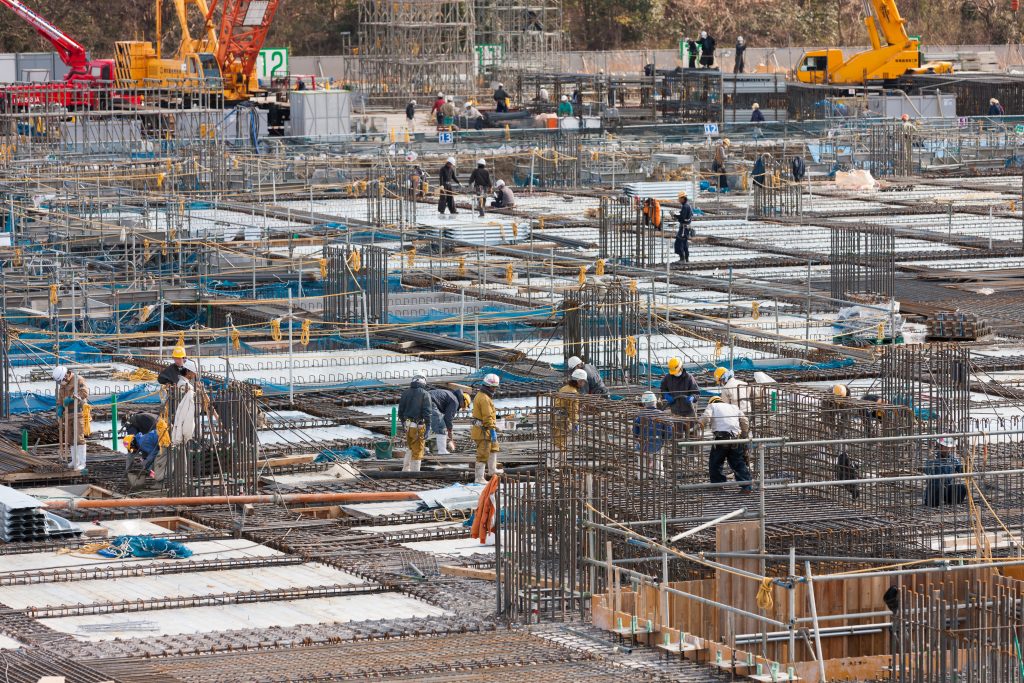By TBH Director, Colin Fox
This article was first published in the June 2024 issue of Construction Week Middle East.
Construction contracts have traditionally been a source of conflict within the industry, often leading to costly and time-consuming disputes.
The adversarial nature of construction contracts is usually because these contracts do not encourage negotiation or partnership but rather position the parties with opposing goals.
Each party, driven by their own interests, will try to manage the contract to their advantage, which can naturally lead to disagreements. Since construction contracts often contain clauses that are interpreted subjectively by the parties, confrontations will occur when these interpretations clash.
Global approaches to adversarial and non-adversarial contracting
Some countries have adopted contract strategies to reduce adversarial relationships and encourage collaboration.
For example, the UK has been at the forefront of implementing partnering arrangements, which are less formalised and promote cooperation between parties, for the last 25-30 years. These contracts are designed to align the objectives of the client and the contractor, recognising that both parties have specific objectives that are not necessarily inconsistent.
Using a collaborative approach, stakeholders work within the boundaries of traditional contracts—but their agreements are grounded in the understanding that both owners and contractors want the best possible outcome and that each party brings unique strengths and capabilities to the table.
By promoting a collaborative environment where issues are addressed as they arise, rather than at the end of the project, these contracts can help in maintaining continuous progress and reducing confrontations.
Adapting lessons to the Middle East region
Adopting these types of collaborative contract strategies can assist parties on both sides of the table to work together towards common goals. This approach helps in the early identification and resolution of issues, reducing delays and costs associated with disputes, leading to more successful project completions and stronger, long-term business relationships. This is especially relevant in the Middle East right now as the region continues to develop and participate in increasingly complex construction projects.
Key elements that could be included in construction contracts in the region that would help minimise disputes include simpler, unambiguous language, detailed scope of work, well-defined risk allocation, and explicit mechanisms for change management and dispute resolution.
It would also be helpful to include clauses that promote collaboration and mutual objectives, as well as provisions for early intervention and regular communication among parties.
Construction contract strategies and motivations
Construction contract strategies across different countries can be shaped by cultural and political differences. For instance, both Australia and the Middle East have contract strategies with strong emphasis on contractor risk allocation.
Stakeholders in these regions tend to be very traditional and approach contracts in a rather one-dimensional manner, whereas, in the UK, the variety in terms of contract forms and procurement is more varied.
The Australian construction industry is heavily defined by adversarial relationships and confrontational contract strategies. This is partly due to the common law legal system, which emphasises contractual freedom and the enforcement of contract terms as agreed by the parties. Naturally, lawyers also have a vested interest in this business landscape.
In the UK, there is a greater emphasis on construction professionals overseeing and managing the execution and administration of these contracts, certainly until disputes become formal in nature.
The civil law legal system, which is more prevalent in many Middle Eastern countries, is generally more prescriptive, with codified laws that provide a detailed framework for contracts. However, the interpretation and application of these laws can vary, leading to uncertainties and disputes, too.
Macroeconomic aspirations often play a factor, too, especially at a governmental level. For example, in Saudi Arabia, the Public Investment Fund finances megaprojects that cost billions of dollars. Consequently, strategic considerations come into play in the management of those projects, resulting in wider motivations, including macroeconomic requirements as opposed to normal project criteria, like ensuring value for money.
Improving relationships
In the past, many contractors have come to the Middle East, been unsuccessful financially, and left, never to return. Many consider the region carries too many unmanageable risks, believing that it’s impossible to make money because the administration of the contracts is perceived as rigid and unreasonable, among other issues.
On the other hand, local companies realise that an adversarial approach is not helpful to the region’s reputation. This leads to more reasonable and collaborative behaviours, trying to solve issues as they arise, to the benefit of both parties.
In doing so, they find themselves almost, by default, in a collaborative, partnering, nonconfrontational position because they know they need these experienced contractors to deliver, and there aren’t enough of them to deliver the anticipated workload.
To get things moving and prevent delays — rather than analysing contract issues in detail, it is becoming more prevalent to seek negotiated settlements, in an attempt to consider all the competing issues and deliver a solution, expeditiously.
Looking ahead
Countries like the UK have demonstrated that it is possible to overcome adversarial relationships and improve project outcomes. The lessons learned from these examples can possibly be adapted to the Middle East to reduce disputes and help create a more collaborative culture.
A cynic might say that non-confrontational arrangements only work if the client has enough financial resources to resolve any issues. Well, there’s no doubt that in the Middle East, many companies do have the funds necessary to address these problems. So, ultimately, it really comes down to the varying objectives of all parties.
The phrase “know the cost of everything and the value of nothing” is often levied at parties in construction. The question to be considered is how both parties interact to ensure their objectives are reasonably met, including, from the client’s perspective, ensuring any public objectives are satisfied.
About Colin Fox

Colin is a chartered quantity surveyor (MRICS) and project manager with over three decades of global experience in the building and engineering sectors. He has held senior management positions in both consultancy and contracting organisations, delivering major projects worldwide covering all construction related sectors.
Colin has represented clients in matters of quantum, project and time management, litigation and arbitration support as well as the preparation, defence and negotiation of contractual claims. He has testified in court and in international arbitrations as an expert witness.
For more information on TBH’s Claims and Dispute Resolution services, click here.


